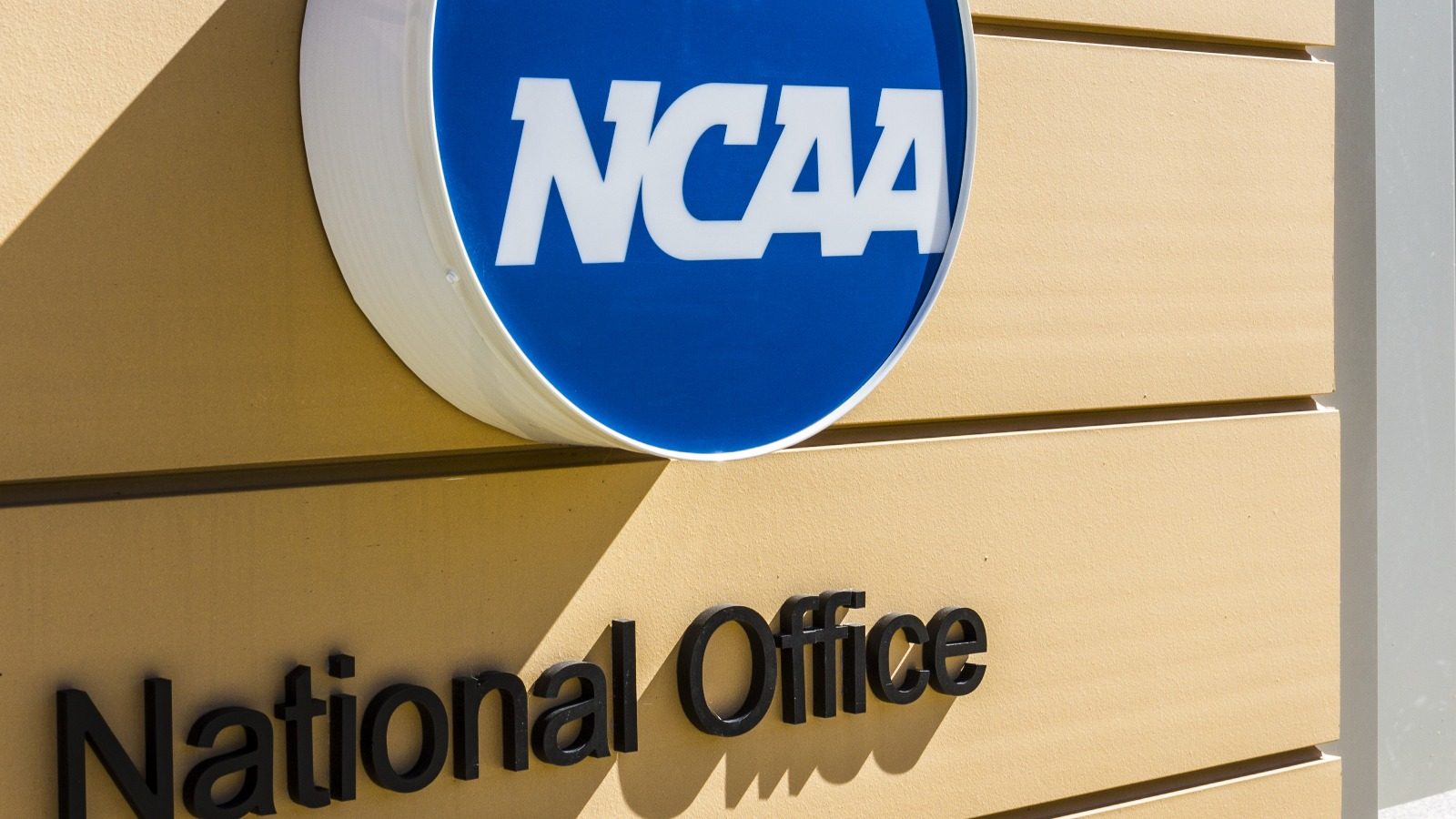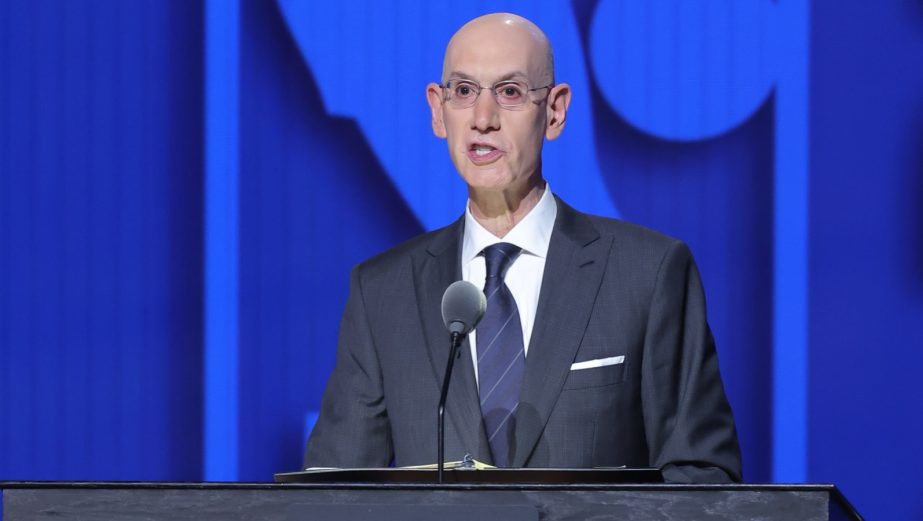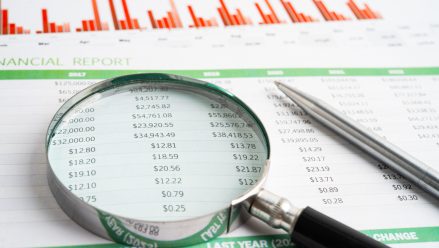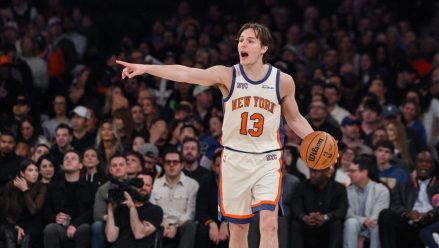The Congressional House Committee on Energy and Commerce on Friday sent a letter to NCAA Executive Director Charlie Baker with questions about his association’s decision to begin allowing student-athletes to bet on professional sports. Committees for all three NCAA divisions earlier this year voted to allow student-athletes of legal age using legal wagering platforms the right to bet on professional sports beginning Nov. 1.
But last Tuesday, the Division I Council announced that it had voted to push back implementation of the rule until Nov. 22, in order to give its members a chance to reconsider.
Since the initial decision was made, key Division I voices, including SEC Commissioner Greg Sankey and Pittsburgh football coach Pat Narduzzi, have spoken out against the decision. Narduzzi called the proposal “absolutely one of the stupidest decisions I’ve ever seen,” per TribLive. “First of all, it’s a habit. It’s no different than smoking, drinking, [or] doing drugs. It’s a bad habit. I don’t think anybody in here encourages their guys to go out drinking and get smashed on a Friday or Saturday night or at a ballgame. It’s a disease.
“… I think it’s an addiction. … I don’t think it’s a great thing to teach our young people how to do.”
It appears members of the congressional committee agree, writing, “The timing of the NCAA’s decision to allow student athlete and staff participation in professional sports betting raises questions about sports betting and integrity of sport in the NCAA.”
NCAA has had its own gambling issues
The committee pointed to a sports betting scandal involving three basketball players from Fresno State and San Jose State as well as one involving three players from Eastern Michigan. In both instances, the NCAA was investigating violations of association gambling rules, and its only recourse was to rescind scholarships. But all of the players had already exhausted their eligibility. None of the schools were penalized.
The NCAA letter went out on the same day that NBA Commissoner Adam Silver was supposed to respond to questions about the NBA sports betting scandal, which broke Oct. 23. It’s not clear if Silver has responded yet, or if the committee will release his response.
Here’s what committee wants to know
In the letter to Baker, the committee requests answers to nine questions by Nov. 13:
- Why is the NCAA changing its policy allowing student athletes to bet on professional
sports? - Has the NCAA conducted any studies, analyses, or reviews of the impact of gambling
on student athletes? If so, what are the results? What role did they play in the
NCAA’s decision to allow student athletes to bet on professional sports? - How does this change allow the NCAA, the conferences, and the member schools to
better protect the integrity of college games and encourage healthy habits for student-athletes who choose to engage in betting activities on professional sports? - How is the NCAA engaging with athletic conferences, member institutions, and
teams to address questions and concerns about this rule change? - Amid recent allegations of illegal sports betting among student athletes and concerns
expressed by member institutions, is NCAA reconsidering implementation of the
policy? - What guardrails are in place to prevent the type of illegal sports betting activity that is
allegedly occurring in the NCAA and NBA, considering that some student athletes
will go on to become professional athletes? - Please provide details about any fraudulent, illegal, and alleged betting practices in
connection with NCAA players, coaches, and officials, including the actions of
NCAA players identified in recent infraction decisions; as well as prior instances,
some of which are identified above. - Please describe the NCAA’s “layered integrity monitoring program” for
maintaining competition integrity and pursuing sports betting violations. - What gaps, if any, are in existing regulations that allow illegal betting schemes to
occur in college sports?
Prior to the letter being sent, the answer to question No. 5 had already been at least partially answered with the Division I committee’s decision to delay implementation of the new rule. However, the committee is asking for a response before the deadline for Division I members to reverse their decision.
The letter is addressed to Baker, and several major figures have spoken out against the new rule, but the decision to allow betting on professional sports was made via voting in three committees. The issue has been under consideration for months. According to the NCAA, the measure would be overturned if two-thirds of its Division I members electronically vote to do so.
NCAA has questions of its own for Kalshi
Also late last week, per ESPN, the NCAA sent a letter to prediction market Kalshi questioning its “commitment to contest integrity and the protection of contest participants.” In the letter, NCAA Chief Legal Officer Scott Bearby asked specific questions about how the prediction market monitors integrity, and if it would report unusual activity to the NCAA. Like traditional sportsbooks, Kalshi is contracted with IC 360 for integrity monitoring. Sportsbooks often contact leagues when unusual or suspicious activity is noted. Bearby also asked questions relating to exclusion lists.
Bearby also asked about Kalshi’s plans for college prop bets. Some states ban prop bets altogether while others limit them. Baker last March started a campaign for a nationwide ban on prop bets. But Kalshi is not subject to the same kind of regulation as a state-licensed sportsbook.








